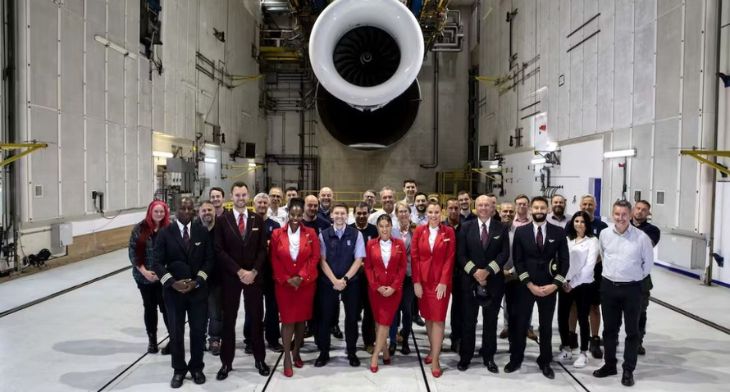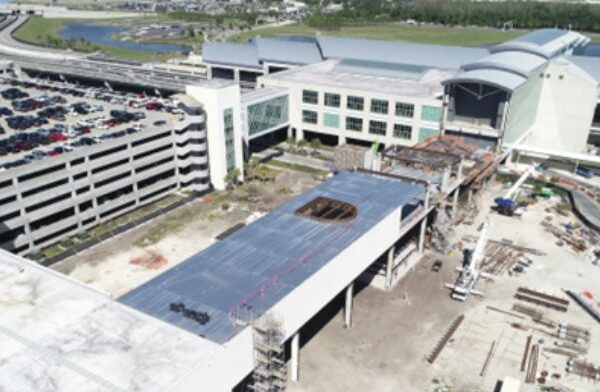


A Virgin Atlantic led consortium has confirmed that on 28 November, 2023 it will fly the world’s first 100% sustainable aviation fuel (SAF) flight across the Atlantic. The flight, which will be flown from London Heathrow in the UK to New York JFK, is however subject to further regulatory approvals and testing.
“The 100% SAF transatlantic flight will be a historic moment in aviation’s roadmap to decarbonisation. Alongside fleet transformation, SAF is the most readily available way for our industry to decarbonise, but currently there’s not enough supply and without it and the radical collaboration required to produce it, we can’t meet our 2030 targets,” said Shai Weiss, CEO, Virgin Atlantic.
“We need UK government support to create a UK SAF industry to allow for every single flight out of the UK to operate with 100% SAF – if we make it, we can fly it,” he added.
The announcement for the flight in November follows a ground test confirming the successful SAF blend on the Rolls-Royce Trent 1000 engines, which will be used to power the Boeing 787 Dreamliner transatlantic flight in November.


While it is recognised as being key to achieving the industry’s net-zero ambitions, SAF represents less than 0.1% of jet fuel volumes today. In addition current fuel standards only allow for up to a 50% SAF blend in commercial jet engines. The one-off Virgin Atlantic flight in November will demonstrate the potential of SAF as a 100% drop-in replacement for conventional fossil fuel.
Virgin Atlantic and its partners will leverage the 100% SAF transatlantic flight to further SAF use, as well as address other environmental impacts of the sector. In additional any residual emissions from the transatlantic flight will be mitigated using innovative carbon removals from biochar projects.
Air bp’s Global Aviation Sustainability Director, Andreea Moyes, also commented on the importance of the 100% SAF flight in November saying, “SAF is currently the most viable option to help us meet the industry’s net zero ambition and in the short and medium term it will be the only option for long-haul flights. Moving our industry and policy towards the use of 100% SAF is important as we work in collaboration with key stakeholders to help decarbonise aviation.”
Moyes was joined by Dave Kettner, President & General Counsel, Virent who commented on the ground test flight saying, “With Virent’s plant-based SAK providing essential fuel components, this test showed that 100% drop-in renewable fuel is cleaner burning and will work seamlessly in today’s commercial airline engines. We’re honoured to collaborate with Virgin Atlantic, Rolls-Royce and Air bp as these forward-looking companies lead the way in sustainable aviation. Virent shares their commitment to finding sustainable ways to fly, and we’re excited about the pivotal role our BioForm SAK plays in making that goal a reality.”





